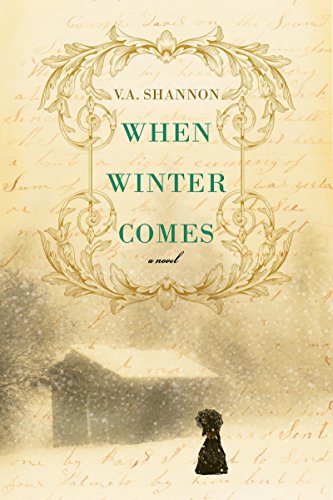When Winter Comes
A narrator known as Mrs. Jacob Klein attempts to set the record straight about the ill-fated Donner Party, which left Independence, Missouri, to make the westward trek to California in 1846. The novel is told by Klein as a teenaged girl, who, fleeing an abusive childhood in Cincinnati, joined up with the settlers on their journey by becoming attached to the family of the German Louis Keseberg as a servant. Interspersed throughout are italicized sections that she relates as an adult looking back on the events; this shift in narration can be a bit jarring and confusing at first.
From the very beginning of the journey, the wagon train was fraught with troubles, and when the Donner group decides to break away from the larger train and take a proposed shortcut across the Sierras to California, the Kesebergs go along. The author provides a good account of the trip’s events, descriptions of both the beauty and harshness of the landscape and of the various arguments, jealousies, and violence among the travelers. The grueling passage through the wilderness is portrayed very realistically: of the settlers being stranded due to the early snowstorms, living in rude shelters, starving, praying for rescue, dying. What occurred when the food ran out and dead bodies were available is related, but downplayed.
At times the narrative seemed slow and a trifle overblown with too much backstory and unnecessary detail, and I never felt truly engaged. However, the author has done her research and manages to capture the drama with accuracy, using a strong heroine who endures dreadful trials and survives to tell the tale.










